Navigating the complex world of LGBTQ+ rights within Muslim communities is a journey filled with diverse viewpoints and evolving conversations. It’s a topic that touches on faith, culture, identity, and personal experience. Many people are trying to figure out how to hold onto their religious beliefs while also understanding and accepting LGBTQ+ individuals. This isn’t always easy, and there are many different ways people are approaching it, both within Muslim communities and globally. We’re going to look at some of these different angles and try to make sense of it all.
Key Takeaways
- Attitudes towards LGBTQ+ rights are changing within many Muslim communities, with younger generations showing more acceptance of same-sex marriage and homosexuality.
- Inclusive spaces like Unity Mosques are emerging, offering safe havens for LGBTQ+ Muslims to practice their faith without fear of judgment.
- Academic and activist efforts are exploring the LGBTQ+ Muslim experience globally, highlighting progressive movements even outside Western contexts.
- Supporting LGBTQ+ Muslims involves culturally sensitive therapy, using affirming language, and utilizing faith-based online communities and resources.
- There’s a push to challenge Western-centric views on sexuality and gender, advocating for an Islamic framework that distinguishes between desire, behavior, and identity, while also defending community values.
Evolving Attitudes Within Muslim Communities
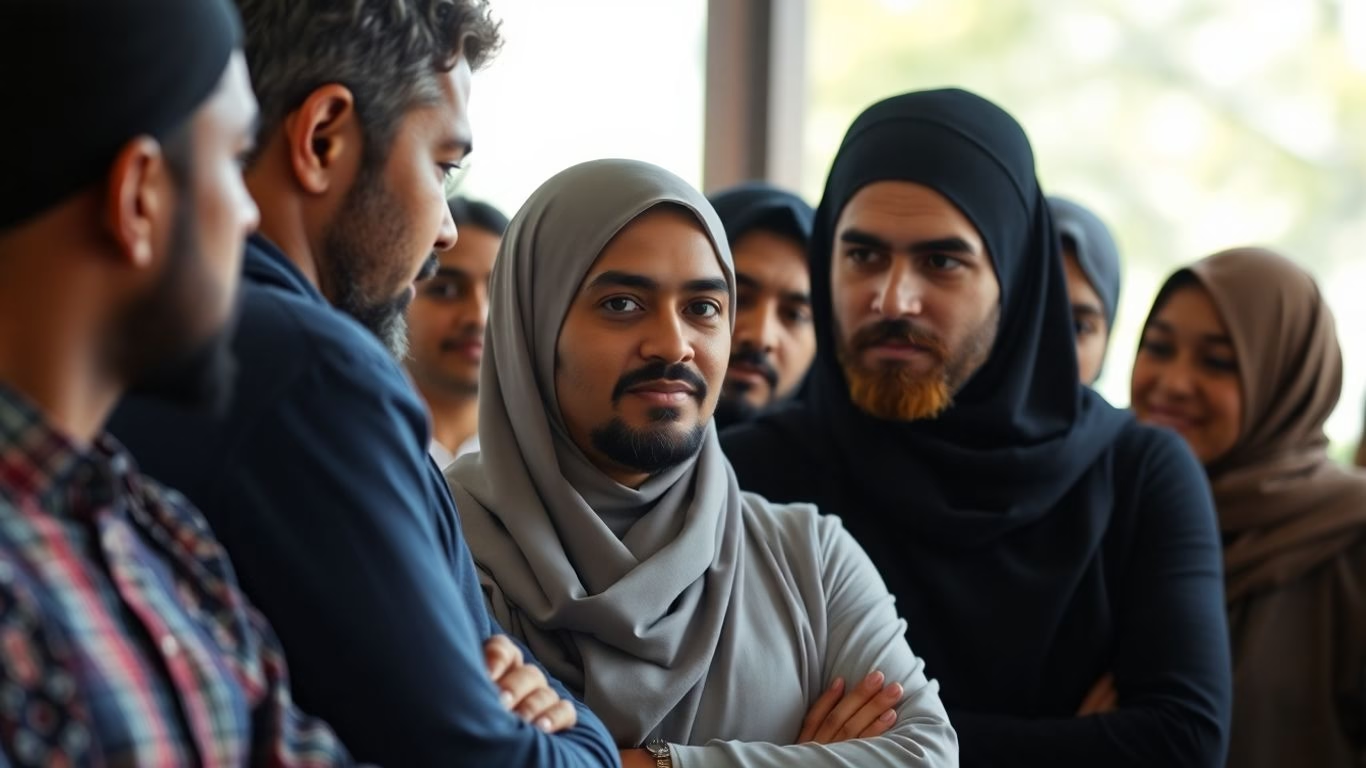
Shifting Perceptions on Same-Sex Marriage and Homosexuality
It’s interesting to see how things are changing, even within Muslim communities, when it comes to views on same-sex marriage and homosexuality. While traditional interpretations have often been quite firm, there’s a noticeable shift happening, especially among younger generations in places like the U.S. A Pew Research Center report from 2020 showed that a good chunk of U.S. Muslims, around 42%, actually support same-sex marriage. Even more striking, about 60% of Muslim millennials think society should be accepting of homosexuality. This doesn’t mean everyone agrees, of course, but it’s a clear sign that conversations are happening and perspectives are broadening.
The challenge lies in reconciling deeply held religious beliefs with evolving societal norms and individual experiences. This isn’t about abandoning faith, but rather about finding ways to live within it that acknowledge the diversity of human lives and relationships.
The Rise of Inclusive Mosques and Affirming Spaces
Because of these shifting attitudes, we’re seeing more spaces pop up that are explicitly welcoming to LGBTQ+ Muslims. Organizations like Muslims for Progressive Values have started “Unity Mosques” in North America. These places aim to be sanctuaries where people can practice their faith without fear of judgment or exclusion. It’s a big deal for folks who might feel marginalized in more traditional settings. These affirming spaces are important for building community and providing a sense of belonging.
Here’s a look at some of the efforts to create inclusive spaces:
- Unity Mosques: Specifically designed to be welcoming to LGBTQ+ individuals.
- Online Communities: Platforms like the Straight Struggle Discord group offer virtual support and guidance.
- Faith-Based Podcasts: Resources such as “A Way Beyond the Rainbow” share personal stories and faith-centered advice.
Reconciling Faith and Identity Through Interpretation
Many LGBTQ+ Muslims are finding ways to connect their faith and their identity by looking at Islamic texts in new ways. This often involves digging into historical and critical interpretations of the Quran. The goal is to find common ground with traditional Islamic values like human dignity and social justice. It’s a way to say, “My faith and who I am aren’t in conflict.” This process can be deeply personal and spiritual, allowing individuals to feel whole and accepted within their religious framework. It’s about understanding that religious texts can be interpreted in ways that are compassionate and inclusive.
Global Perspectives on LGBTQ+ Muslims
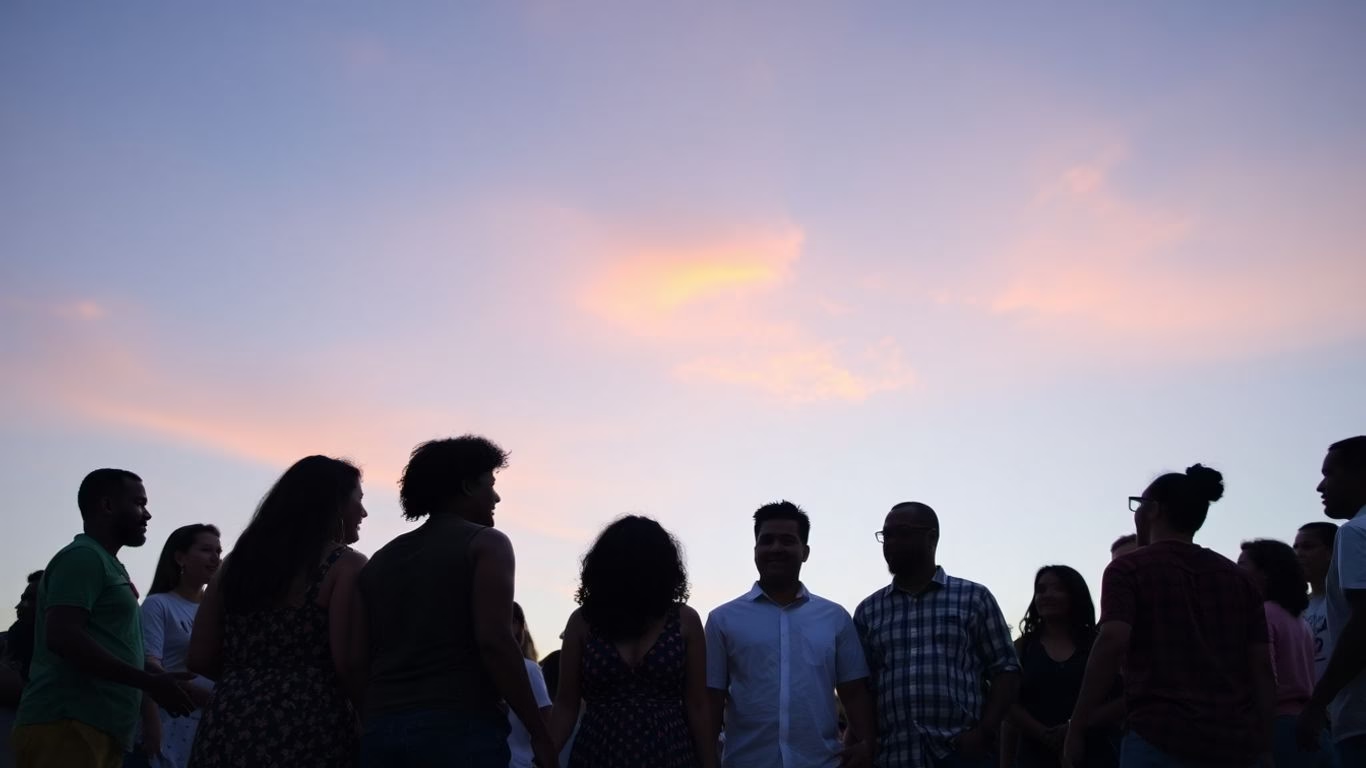
Progressive Developments Beyond Western Contexts
It’s easy to think that conversations about LGBTQ+ Muslims are mostly happening in North America and Europe, but that’s really not the whole story. There are actually some pretty interesting shifts happening in Muslim-majority countries too, even if they don’t always make the headlines. Think about places like Indonesia or Singapore – researchers are starting to find more and more signs of progressive movements and changing attitudes there. It shows that the experience of being both Muslim and LGBTQ+ isn’t a one-size-fits-all thing; it’s really diverse and plays out differently depending on where you are in the world.
Academic Exploration of the LGBTQ+ Muslim Experience
Scholars are really digging into this topic now, which is great. A special issue of the Journal of Homosexuality back in 2021, for instance, was a big step in bringing together different research. It highlighted how LGBTQ+ Muslims are navigating their faith and identity in all sorts of unique ways. This kind of academic work is super important because it helps us understand the complexities and challenges people face, moving beyond simple assumptions.
The Role of International Advocacy and Diplomacy
When we talk about advocacy, it’s not just about local community groups. International organizations and even diplomatic efforts can play a part. Sometimes, discussions at a global level, even if they’re indirect, can influence how rights and acceptance are viewed. It’s a slow process, for sure, and often involves a lot of careful communication to bridge different cultural and religious viewpoints without causing more division. The goal is to find common ground where possible, respecting diverse perspectives while pushing for greater human dignity for all.
Navigating Identity and Faith
Understanding Different Worldviews on Sexuality
It’s a complex world out there, and when it comes to sexuality, people have a lot of different ideas. In many Western societies, there’s been a big shift, especially after what some call the ‘sexual revolution.’ This has led to a focus on individual feelings and choices, often seeing identity as something fluid and personal. Think about concepts like ‘gender identity’ and ‘gender expression’ being presented as spectrums, where how you feel inside is the main thing. This can be a real head-scratcher when you’re trying to square it with traditional religious views.
Reclaiming Islamic Discourse on Gender and Morality
For Muslims, faith often provides a framework for understanding life, including relationships and morality. Islamic teachings tend to focus more on actions and behaviors rather than fixed identities. So, instead of labels like ‘gay’ or ‘lesbian,’ the emphasis might be on experiencing same-sex attraction as a personal struggle, a kind of jihad or inner striving to remain true to one’s faith. This isn’t about denying feelings, but about framing them within a spiritual context. It’s about finding ways to live according to Islamic principles, even when facing personal challenges. This approach aims to offer a path of spiritual perseverance and connection to Allah.
The Challenge of Reconciling Faith with Personal Struggles
Trying to balance deeply held religious beliefs with personal feelings and experiences can be really tough. It’s like trying to hold two different maps that don’t quite line up. Some people find themselves caught between the evolving social norms around them and the teachings they grew up with. This can lead to a lot of internal conflict and questions about where they belong. It’s a journey that requires a lot of self-reflection and often, support from others who understand both sides of the equation. Finding mentors, having someone to talk to, or connecting with online communities can make a big difference. It’s about finding a way to be true to yourself and your faith, even when it’s hard.
Supporting LGBTQ+ Muslims
Culturally Sensitive Therapeutic Approaches
When LGBTQ+ Muslims seek mental health support, it’s really important that therapists get where they’re coming from. This means not just understanding general therapy practices, but also being aware of the specific cultural and religious background of Muslim communities. A therapist who takes the time to learn about Islamic traditions and values can create a safer space for someone to open up about their experiences. It’s about acknowledging that faith and identity aren’t separate things for many people; they’re deeply intertwined.
- Start with a thorough intake: Therapists should ask about a client’s religious beliefs and cultural background right from the start. This isn’t just a formality; it helps build trust and shows that the therapist respects their whole identity.
- Explore faith and identity together: Instead of seeing faith and LGBTQ+ identity as conflicting, therapy can help individuals explore how these parts of themselves can coexist. This might involve looking at religious texts or traditions in new ways.
- Be mindful of language: Using words that affirm a person’s identity is key. This means avoiding judgmental language and validating the challenges they face.
It’s easy for well-meaning people to offer simple advice, but when someone is dealing with complex feelings about their faith and identity, quick fixes just don’t work. Real support comes from patience and a willingness to understand the depth of their struggle.
The Importance of Affirmative Language and Validation
Using the right words can make a huge difference. For LGBTQ+ Muslims, hearing language that validates their experiences and identities is incredibly powerful. This means acknowledging the unique challenges they might face, like navigating family expectations or finding acceptance within their religious community. Simple phrases can go a long way in showing support and respect.
Faith-Based Resources and Online Communities
Finding community and resources that understand both faith and LGBTQ+ identity is a game-changer. There are now several great options available, especially online, that offer a sense of belonging and guidance.
- Podcasts: Shows like “A Way Beyond the Rainbow” offer personal stories and faith-centered advice for Muslims dealing with same-sex attraction.
- Online Groups: Platforms like Discord host communities such as “Straight Struggle,” where individuals can connect with others facing similar issues and find support.
- Organizations: Groups like Muslims for Progressive Values (MPV) have established “Unity Mosques” that provide welcoming spaces for worship and community.
These resources are vital for helping LGBTQ+ Muslims feel less alone and more connected to both their faith and their identity.
Challenging Western Paradigms
It feels like the conversation around LGBTQ+ issues in Muslim communities often gets filtered through a Western lens, and honestly, that doesn’t always fit. We need to talk about how the modern Western framework, especially after the sexual revolution, shapes how these topics are discussed globally. It’s not just about differing opinions; it’s about different foundational ideas.
Critiquing the Post-Sexual Revolution Framework
The West’s approach to sexuality, particularly after the 1960s, really changed things. Ideas about gender and desire got tangled up in ways that don’t align with traditional Islamic thought. In Islam, we see gender as something God-given, not just a social construct. The Western model often separates sex, reproduction, and marriage, and it conflates desire, behavior, and identity. This can lead to a focus on individual feelings as the ultimate moral guide, which is a big departure from a faith-based morality. It’s like we’re being asked to accept a framework that prioritizes personal feelings over divine guidance, and that’s a tough pill to swallow for many.
The Neocolonial Nature of Global LGBT Advocacy
Sometimes, the way LGBTQ+ advocacy is pushed globally can feel a bit like cultural imperialism. It’s like a one-size-fits-all approach that doesn’t respect the diverse cultural and religious contexts of Muslim-majority countries. We’ve seen historical examples of Western ideas being imposed on other cultures, and there’s a concern that this is happening again. It’s important to recognize that what might be considered progressive in one part of the world might be seen as undermining deeply held values elsewhere. We need to be wary of any agenda that tries to force a specific worldview onto communities without acknowledging their unique histories and beliefs. This isn’t about being against human dignity; it’s about questioning the methods and assumptions behind the push.
Asserting an Islamic Paradigm on Gender and Sexuality
Instead of just reacting to Western ideas, we need to actively articulate and promote an Islamic understanding of gender and sexuality. This means going back to our own sources – the Quran and Sunnah – to build a framework that is both faithful and relevant. It’s about affirming the wisdom of divine law and understanding that our purpose is rooted in submission to God. This isn’t about rejecting people; it’s about offering an alternative perspective that centers faith and a different understanding of human nature. We can support Muslims who are struggling with same-sex attraction or gender dysphoria while still upholding Islamic teachings. It’s a delicate balance, but one that is necessary for building authentic Islamic responses. We need to reclaim the discourse and build our own conceptual framework based on Islamic sources.
Here’s a quick look at how the Western paradigm differs:
| Western Paradigm | Islamic Paradigm |
|---|---|
| Gender as fluid/socially constructed | Gender as divinely created, distinct |
| Desire, behavior, identity conflated | Desire, behavior, identity differentiated |
| Individual feelings as moral arbiter | Divine command as moral arbiter |
| Emphasis on sexual liberation | Emphasis on chastity and lawful relationships |
The modern Western emphasis on individual autonomy and self-expression, while having its merits, can sometimes overshadow communal values and divine mandates. Re-centering the conversation on Islamic principles allows for a more holistic approach that considers both individual well-being and the broader societal good as defined by faith.
Islamic Legal and Ethical Considerations
Quranic and Prophetic Guidance on Sexual Ethics
When we talk about Islamic legal and ethical considerations regarding sexuality, it’s important to start with the foundational texts: the Quran and the Sunnah (the teachings and practices of Prophet Muhammad, peace be upon him). These sources lay out a clear framework for sexual morality. The Quran, for instance, praises those who guard their chastity and limits permissible sexual relations to marriage. Acts outside of this marital bond are generally considered prohibited. The Sunnah further elaborates on these guidelines, offering practical examples and interpretations.
The Role of Cultural Norms (Urf and Adah)
Beyond the core texts, Islamic jurisprudence also considers cultural norms, known as urf and adah. These refer to the customs and practices of a society. While not a primary source of law, they can influence how general Islamic principles are understood and applied in specific contexts. This means that interpretations can vary across different Muslim communities, reflecting local traditions and understandings. It’s a way of making the faith relevant to people’s lives in diverse settings.
Distinguishing Between Desire, Behavior, and Identity
A key point in many discussions is the distinction between internal feelings, actions, and one’s overall identity. Islamic teachings primarily address sexual behavior, categorizing acts as permissible (halal) or prohibited (haram). The focus is on actions rather than innate inclinations or what might be termed identity in Western frameworks. This distinction is significant because it allows for compassion towards individuals experiencing same-sex attraction or gender dysphoria, while still upholding the established prohibitions on certain sexual acts. The community’s response to individuals struggling with these feelings is a complex area, but the principle remains that one’s core identity in Islam is as a servant of God.
The Shariah categorizes sexual acts, not identities, as permissible or forbidden. Permitted sexual relations are those between a man and a woman within a valid Islamic marriage contract. All other acts are considered illegitimate. This approach emphasizes conduct over inherent feelings or self-defined identities.
- Quranic verses like Surah Al-Mu’minun (23:5-6) emphasize guarding chastity.
- Prophetic traditions provide further guidance on modesty and appropriate conduct.
- Scholarly consensus historically interprets these texts to prohibit same-sex sexual acts.
Understanding these legal and ethical considerations is vital for a nuanced conversation about LGBTQ+ Muslims. It helps to clarify the basis of Islamic perspectives and how they are applied. For more on how Islamic law views these matters, you can look into discussions on Islamic law opposes LGBT behavior.
Community Mobilization and Defense of Values
Responding to Controversies and Misrepresentations
It feels like lately, there’s always some new controversy popping up, doesn’t it? Especially when it comes to discussions about faith and modern life. For Muslims, trying to hold onto traditional values while also living in a world that’s constantly shifting can be a real balancing act. Sometimes, the way things are presented in the media or by certain groups just doesn’t get the full picture. It’s like they’re talking about one thing, but the actual meaning gets twisted along the way. We see this a lot when topics like sexuality and gender come up. The way these ideas are framed can feel like they’re attacking core beliefs, and that’s where a lot of the friction starts.
The Significance of Community Petitions and Advocacy
When things get heated or misunderstood, communities often feel the need to speak up. Petitions and advocacy are ways people try to make their voices heard. It’s not just about disagreeing; it’s about explaining a particular viewpoint and asking for it to be understood, or at least respected. Think about it like this: if you feel your community’s values are being misrepresented, you’d want to find a way to clarify things, right? That’s what these efforts are about. It’s a way to say, ‘Hey, this is what we believe, and here’s why.’ It’s about trying to shape the conversation so it’s more accurate and fair to everyone involved.
Articulating Stances in a Pluralistic Society
Living in a society where lots of different beliefs and lifestyles exist means we all have to figure out how to get along. For Muslims, this means being able to explain their perspective on things like marriage, family, and morality in a way that makes sense to people who might not share those same beliefs. It’s a challenge, for sure. You want to be clear about your own principles without alienating others. It requires a lot of thought and careful wording. The goal is to find a way to coexist peacefully, where different viewpoints can be expressed without constant conflict. It’s about finding that middle ground, or at least a way to respectfully disagree.
The way we talk about sensitive topics matters a great deal. When discussions become overly charged or simplified, it’s easy for misunderstandings to take root. Building bridges requires clear communication and a willingness to explain one’s position thoughtfully, even when that position differs from the prevailing narrative. It’s about presenting a viewpoint with conviction, but also with an awareness of the broader social context.
Here are some ways communities engage:
- Educational Outreach: Creating materials or holding sessions to explain Islamic perspectives on social issues.
- Interfaith Dialogue: Participating in conversations with other religious and cultural groups to build mutual understanding.
- Media Engagement: Responding to news stories or public discussions to offer a more nuanced view.
- Legal Advocacy: Working within legal frameworks to protect religious freedom and community values.
Moving Forward Together
So, where does this leave us? It’s clear that conversations around LGBTQ+ rights within Muslim communities are complex, with a lot of different viewpoints out there. We’ve seen how some groups are actively working to create more welcoming spaces, like the Unity Mosques, and how younger Muslims, in particular, are showing more openness. At the same time, there are deeply held beliefs and traditions that shape how others see these issues. It’s not a simple picture, and there’s no single answer that fits everyone. What seems most important is continuing these dialogues with respect, even when we disagree. Finding common ground, supporting those who feel caught between their faith and identity, and allowing space for different interpretations will be key as we move forward. It’s a journey, and one that requires patience and a willingness to listen to each other.
Frequently Asked Questions
Are all Muslims against LGBTQ+ people?
Not at all. While some interpretations of Islam have historically been against LGBTQ+ identities, many Muslims today are working to create more welcoming spaces. Some mosques are now specifically for LGBTQ+ Muslims, and many younger Muslims are more accepting of same-sex relationships than older generations.
Can you be Muslim and LGBTQ+?
Yes, many people identify as both Muslim and LGBTQ+. They often find ways to connect their faith with their identity by looking at religious texts in new ways or by finding supportive communities. It’s about finding a balance that feels right for them.
What does Islam officially say about being LGBTQ+?
Traditional Islamic teachings, based on certain interpretations of the Quran and Hadith (sayings and actions of Prophet Muhammad), generally prohibit same-sex acts. However, how these texts are understood and applied varies greatly among Muslims. Some scholars focus on the prohibition of specific acts, while others emphasize broader Islamic values like compassion and justice.
Are there resources for LGBTQ+ Muslims?
Absolutely. There are organizations, online groups, and podcasts created by and for LGBTQ+ Muslims. These resources offer support, community, and ways to explore faith and identity. Examples include ‘Muslims for Progressive Values’ and online communities where people can share their experiences.
Is the idea of LGBTQ+ rights being pushed on Muslim communities from the West?
Some people feel that Western ideas about LGBTQ+ rights are being imposed on Muslim cultures, sometimes called ‘cultural imperialism.’ However, many LGBTQ+ Muslims see it as a matter of human rights and personal identity, not just a Western concept. It’s a complex issue with different viewpoints.
How do cultural traditions affect how Muslims view LGBTQ+ issues?
Culture plays a big role. What’s considered normal or acceptable in one Muslim community might be different in another. For example, how close friends interact physically can vary. These local customs, known as ‘urf,’ can sometimes influence how religious rules are understood and practiced regarding gender and relationships.

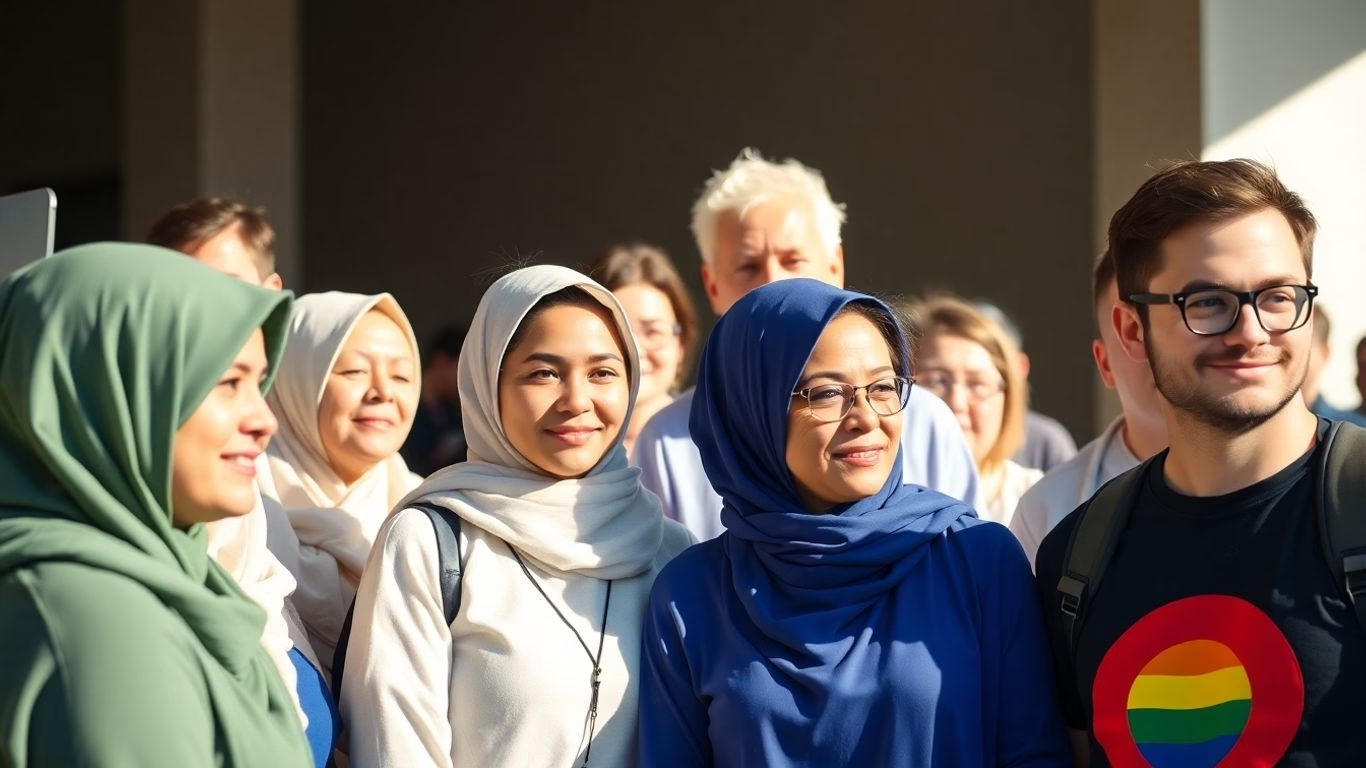
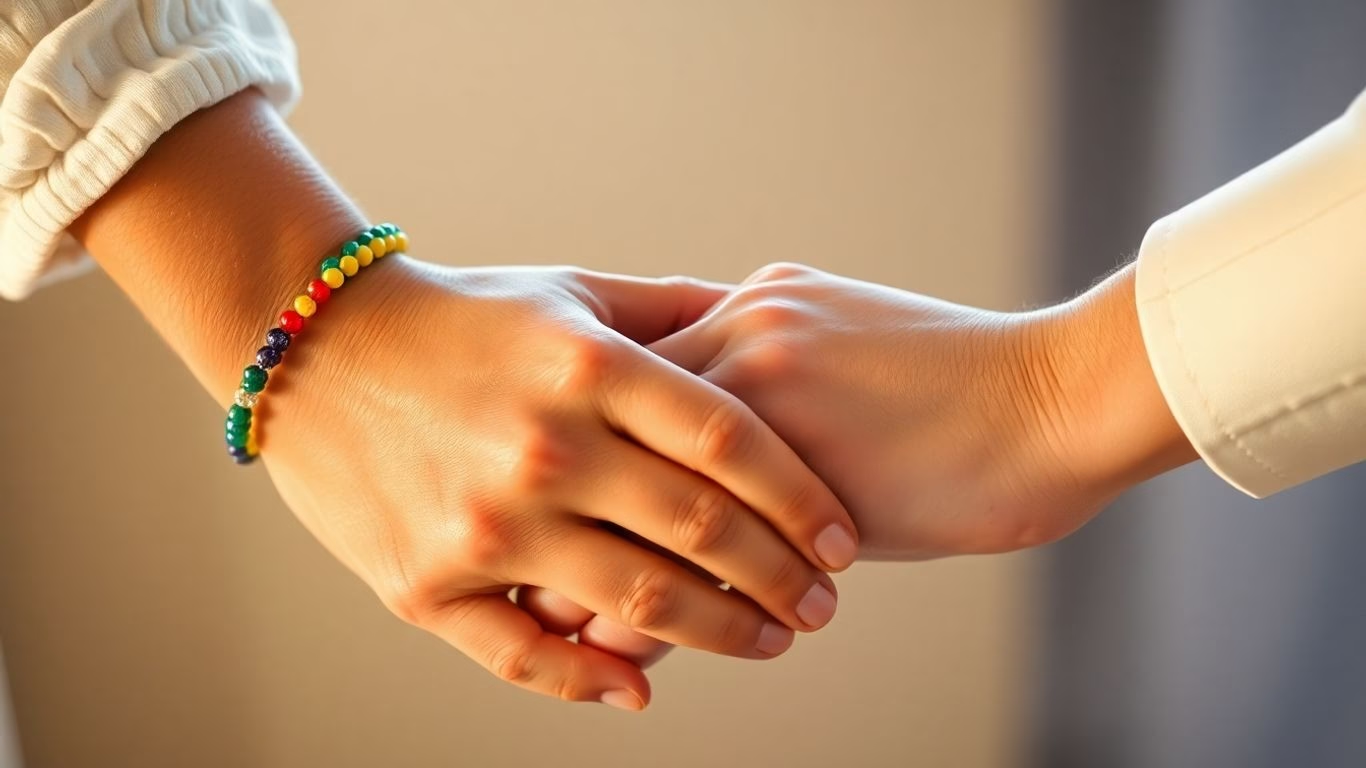
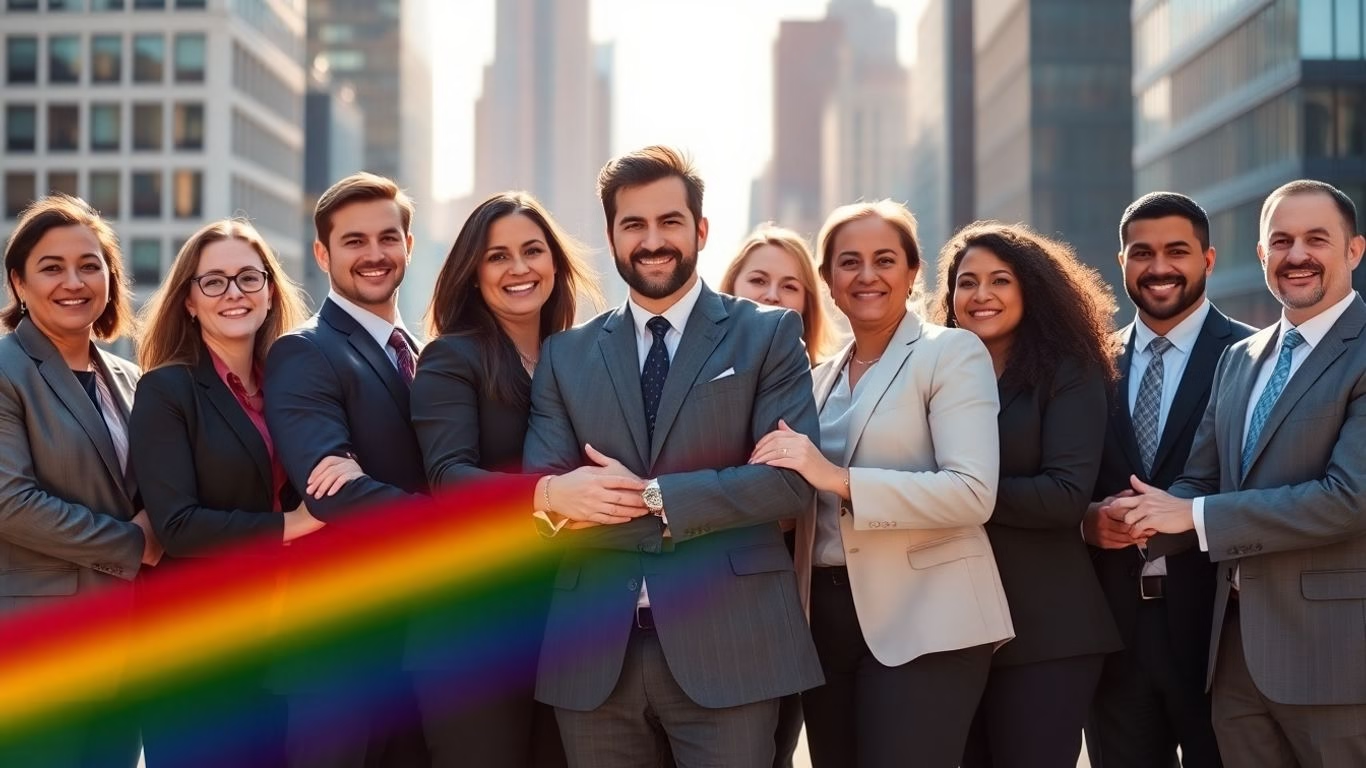
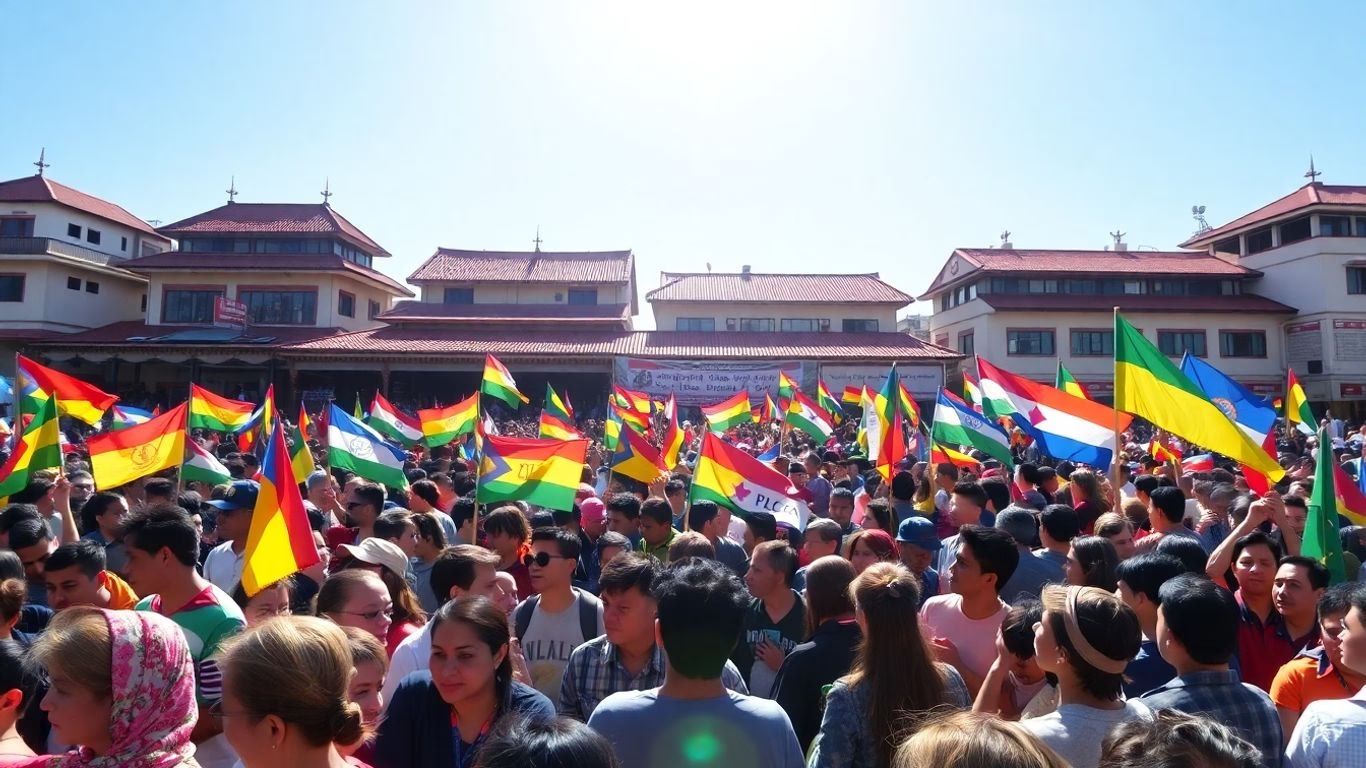
Leave a Reply